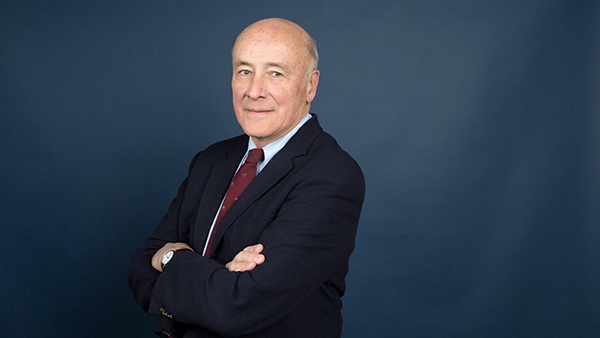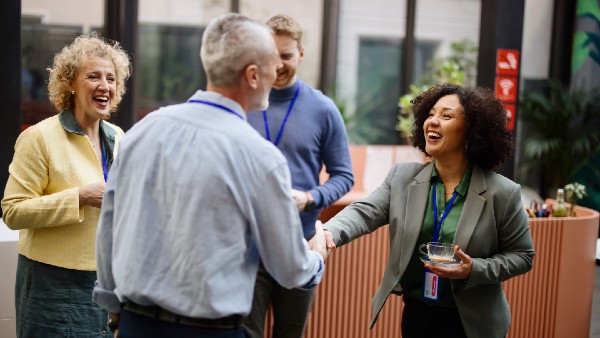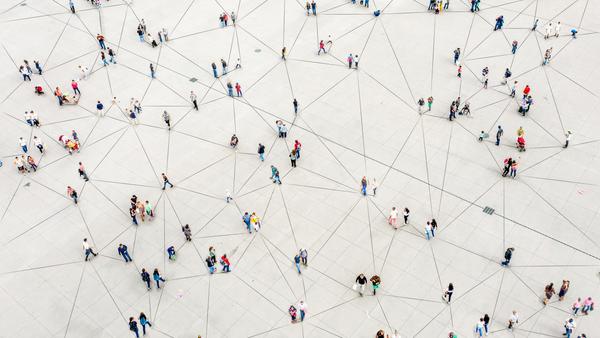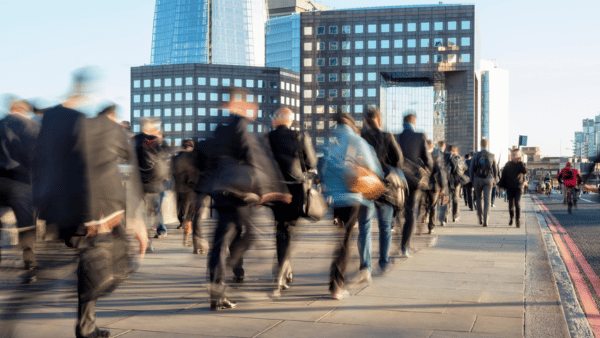Joseph Nye is interviewed by Lauren Gambino about the changing world order post-Covid-19 and the direction the US might go in next
Joseph Nye is a political scientist and Distinguished Service Professor, Emeritus, at Harvard University. His latest book, Do Morals Matter?, is out now.
Lauren Gambino is a senior political reporter at the Guardian US
Lauren Gambino: We have seen countries, the US included, increasingly turn towards populist forms of nationalism, but is liberal democracy actually under threat and how has the pandemic impacted that?
Joseph Nye: Well clearly there are waves of democracy globally. Samuel Huntington wrote about the third wave and we’re now seeing some receding of democracy in terms of the number of countries that are regarded as democratic or fully free by organisations like Freedom House, so objectively you could say that there has been some threat to democracy.
However, one has to be careful not to see populism as necessarily the opposite of democracy. There have been periods where the US has been populist in the past – think of the 1890s and William Jennings Bryan – and these periods were associated with more democracy rather than less. We’ve been through a bad spell of inward-turning or nativist populism in many countries – the Trump election and Brexit vote are cases in point – but I don’t think that it necessarily means the end of democracy for liberal democratic countries.

If you look at a number of countries, such as Germany, France, Canada and Australia, it’s hard to see these as going through an end of democracy. Probably the tide may have turned on nativist populism in some of these situations. Overall, yes there has been some retreat of democracy, which started before Covid-19 and I would say it peaked around 2016, 2017. The pandemic put pressure on the system. But if you want a counterintuitive thought, it may be that Covid-19, by getting rid of Donald Trump, may actually have helped democracy in the United States. How’s that for a perverse thought? But it’s accurate.
Gambino: Has the pandemic helped to strengthen international relations or has it created tension there as well?
Nye: The pandemic clearly creates strong tensions in societies but if, for example in the US case, it leads to something like the recent CARES Act, which the Biden administration passed and which may do something for child welfare allowance and to reduce inequality, that might actually be productive rather than counterproductive. Again, it takes years to know with a historical event like this what its full effect has been. When we think back to 1918 and the great flu incidence, which killed more people than Covid-19 has so far, most people feel that it had some effects which are positive, some which are negative, for democracy, but it wasn’t the turning point. Economics seems to play a bigger role. It was the Great Depression in the 1930s that led to the rise of fascism and communism and it was, I would argue, the great recession of 2008–09 which led to the upsurge of this nativist-type populism that has challenged democracy, or liberal democracy, most recently.
Covid-19 has had strong effects on our society but we don’t want to assume that it means the end of democracy. And there are some countries, some democracies, such as New Zealand or South Korea, which have done better than many autocracies.
Gambino: Is there evidence to suggest that maybe authoritarian regimes have had a better response and have been able to handle Covid-19 more effectively than some democracies?
Nye: Yes and no. China, with its authoritarian system, is able to enforce lockdowns and to avoid anything like a rebellion against mask wearing and so forth; on the other hand the nature of the authoritarian system in China is why we’re in this trouble now. The initial results in Wuhan were censorship and denial and if instead of that you’d had a prompt response, such as we had to SARS, we wouldn’t have a worldwide pandemic. Authoritarianism has had some benefits, but also some very high costs.
Gambino: People have protested against lockdown measures and Covid-19 restrictions, arguing that they have eroded our freedom and democratic values in the name of safety. What do you make of these protests?
Nye: Well again, if you take a historical perspective, we had people who were protesting against wearing masks back in 1918. You had violence that grew out of disputes about isolation and mask wearing in an earlier period. And it’s true not just of the US with its strong libertarian tradition; even social democratic countries like Sweden and the Scandinavians have had some problems with masks. Again, I don’t think this is really a turning point. I do think that with democratic societies there’s always going to be part of the population that resists things they see as curtailing their freedoms or interfering unduly with their personal lives and this takes different forms.
Gambino: Do you think rising inequality has contributed to a loss of faith in democracy?
Nye: The numbers will support that there has been increasing inequality in the US and this does have an effect on the political polarisation we experience. It’s not just economic inequality that’s the cause of the current political polarisation, there’s a large cultural element related to race as well. Downward mobility, which is a little different from inequality, has been a cause of populism. As some point out, white males without a college education have seen a decline in their status while women and minorities have started to do better.
The interesting issue is whether the emergency responses to Covid-19 may help change broader social and political attitudes towards dealing with inequality. The idea that the US would pass two pieces of legislation, each of which cost about US$2trn, to deal with the effects of Covid-19 is having a spillover onto some of these inequality issues which may turn out to be very important – as important as the effects on Covid-19 itself.
Gambino: You can’t talk about questions of democracy without thinking about what happened on 6 January here in the US.
Nye: The rise of social media and cable television – which rest on business models that reward extremism – interacts with the other things we’ve mentioned such as inequality and downward mobility, and that in turn provides a background for Donald Trump to provide a welcoming environment for conspiracy theories. The invasion of the Capitol on 6 January, horrible as it was, represented a very small percentage of the American public. What worries me more is the amount of people who still believe that the election was stolen, and the former president himself keeps reinforcing this myth. That reflects the polarisation, which is particularly worrying, but one of the things to notice is that polarisation in Washington and in Congress and the political system is much worse than it is at the local level.
At the same time that we had these trends, which are very worrying for democracy, you had the ability to carry out a highly decentralised election under the extraordinarily difficult conditions of the pandemic and it was by all accounts – by more than 60 court cases – a pretty fair election. What’s more, it was supported and sustained by local officials who were unwilling to be suborned by a president; you had local heroes who believe more deeply in democracy than in their party loyalties.
The trends I described are worrisome but it’s also worth remembering that there’s stronger local support for democracy in the US than some of the heated trends and polarisation that we see in Washington. What will be interesting will be to see whether we’ll be able to grow our way out of these bad trends if Biden gets the pandemic under control and the economy moving at a rapid pace.
Gambino: How will the internet affect our democracy going forward?
Nye: I still think in the long run there’s more benefit in a society and polity from having the free flow of information than having a type of authoritarian control. I mentioned earlier that we saw in the early stages of the events in Wuhan that authoritarian control hurt more than it helped. The key question is: does our openness leave us vulnerable? Certainly Russia and China are eager to exploit our cyber insecurity, if not to particularly throw or switch an election in one direction or another, but to argue that our open system is chaotic and unworkable. We’re going to have to do a lot more about cyber security. All round, openness is better than being closed, but being open means vulnerability and we’re going to have to do a better job of starting to protect against some of those vulnerabilities.
Gambino: Are western democracies always going to be curbed by their belief in free speech in their efforts to combat disinformation?
Nye: We’re wrestling with this now as we deal with things like how should we amend Section 230 of the Communications Decency Act. We haven’t quite absorbed the role of large-scale social media. I think you’re going to see a national debate on this growing and continuing over the next few years. There’s never a perfect answer when you have trade-offs between different values and security and freedom but I think it’s something we will be able to manage if we get our act together.
Gambino: China’s increasingly been making the case that US values aren’t supported by the majority of people around the world. What does that say about China’s assertiveness and its increasing public opposition to democratic values?
Nye: Some people say it shows how strong China is; I would say it shows how weak it is. If you think about it, we pose an ideological threat to their system, but they don’t pose an ideological threat to us. Look at international public opinion polls by Pew and Gallup and others. They show that China does not do very well when people are asked about whether a country is attractive or not, which I call a country’s soft power. With all their vaccine diplomacy and trying to act benign, China is highly distrusted. You find much higher levels of attractiveness, or soft power, for the US than you do for China. Maybe that’s why they have to make these aggressive speeches like at Anchorage recently, which I think was originally primarily for domestic consumption. Their real fear is something that threatens the central party control over the public in China. I’d rather have our problems than theirs!
Gambino: Both the Trump administration and the Biden administration have taken a very hard line and have tried to rhetorically and otherwise really stand up to China. What do you make of that response?
Nye: There’s quite a difference between Trump’s approach and Biden’s. Trump essentially put tariffs on China, which I think was justified, but also put tariffs on our allies at the same time. Before the recent meeting in Anchorage, Biden had a high-level meeting of the Quad. The Biden administration has said let’s get our allies in line, let’s get a common position, and then be tough with China. Trump said let’s be tough with everyone simultaneously. I think Biden’s going to be more effective.
Gambino: Do you think we’re witnessing an end of arms control?
Nye: Arms control is less central and is weaker than it was at the height of the Cold War, but there are still some aspects that are important. There was recently an extension of the US–Russian agreement on strategic weapons to 2026, but I think even more importantly we have the non-proliferation treaty, which was negotiated in 1968 and still remains crucial. You also have other aspects of arms control, such as missile technology control, so let’s say that it’s not as healthy as it was, but it ain’t dead yet.
Gambino: Biden has obviously made a big push to break with his predecessor but where do you see the US going?
Nye: There was a deepening of mistrust of the US during the Trump administration because of his withdrawing us from the joint comprehensive plan of action (JCPOA) and the Paris Agreement, and because of his criticism of our own allies in Europe and Asia. It takes time to recover from mistrust. Biden has tried to repair that relatively quickly by re-joining the Paris accord and by pledging to dedicate US$4bn to Covax. All these things were helpful in terms of restoring America’s reputation and soft power, but as some of our European friends have said: what happens if Trump comes back, or somebody like Trump, in 2024? Can we really trust you? Biden has made some important steps in the right direction.
In terms of alliances, it’s interesting to see with this recent meeting of the Quad the willingness of India to work with others as they see a rising threat from China. The reinforcements of NATO that Biden and Secretary of State Antony Blinken have tried to create indicate that these alliances are probably going to stay fairly strong. The interesting question would be whether we’re able to work together in some of the new areas such as climate issues and pandemics. China produces more greenhouse gases than the US does and you have to realise that while we’re competitive with China on things like the South China Sea, when it comes to greenhouse gases and climate issues we have to work with them. You need to have China inside the deck, not outside; we are all ecologically interdependent.
Gambino: Is the world more prepared for the next pandemic, the next global crisis? Has this experience made countries resilient, or by this trend of turning inwards is that a dangerous sign?
Nye: In some ways we’re better off, in some ways worse off. Worse off is the rise of vaccine nationalism, but the good news is something like the Covax facility of the World Health Organization to get vaccines to poor countries. But frankly I don’t know that we’ve learnt the lesson that until everybody is vaccinated, or at least you have herd immunity at the global level, nobody is safe. We’re being slow in learning that lesson and I would put a lot more effort into Covax and getting vaccines to poor countries.
The better news is the speed with which vaccines were developed. People used to talk about taking a decade to develop vaccines, and some people even expressed scepticism at the beginning of the pandemic whether we would ever have a successful vaccine, and so the science has progressed quite remarkably. The question we face is whether the politics can even begin to keep up with the science.
Gambino: Will the lessons from the pandemic help us to go forward and tackle climate change?
Nye: If you look at the scientific and economic side of climate change, the advances in production and lowering the cost of renewable energy have been quite dramatic. In politics you have the failure of the 2009 UN Copenhagen Climate Change Conference, but compare that with four years later in Paris and the ability to get the Paris Agreement. So there is some progress, but on the other hand it’s nowhere near fast enough. The interesting question is whether we’re going to see some technological breakthroughs that are able to deal with decarbonisation in areas like industry. We’ve got a long way to go on the technology and economics and, politically, we’re just not moving fast enough. You do see a change in public attitudes though, which is healthy. The public is much more aware of climate change than it was a decade or so ago.
Gambino: Where do you think we’re going over the next few years?
Nye: I tend to be mildly optimistic. If we get the pandemic under control and if we get the economy moving then the style Biden is using of trying to reduce the temperature of polarisation in American politics has a somewhat better chance of succeeding. The prospects for those ‘if’ clauses being true now look reasonably good, so that’s what makes me mildly optimistic. But if something goes wrong on either of those ‘if’ clauses I’ll become pessimistic.
In my new book I say you have to learn how to balance power over others and power with others, and there are some areas where we’re going to have to combine those two things at the same time: power over and power with. And that’s not easy for Americans to do. I think Biden gets it.
Related articles
-
Introducing the Fellowship Promotion Guide
Fellowship news
Fionna Monk
Our brand-new Fellowship Promotion Guide is a powerful new resource designed to make it easier than ever for current Fellows and staff to share the value of the RSA Fellowship with others.
-
Why 2025 is an exciting year to be an RSA Fellow
Fellowship news
Fionna Monk
Happy New Year! 2025 is shaping up to be a landmark year for the RSA Fellowship, brimming with new opportunities, initiatives, and global collaborations. There’s never been a more exciting time to be part of this dynamic and engaging community. Here’s more on why this year promises to be an inspiring and impactful year for RSA Fellows worldwide.
-
Counting the cost of bowling alone
Blog
Andy Haldane
In his 2025 CEO Lecture, Andy Haldane addresses how the ever-increasing cross-border flows of goods, people and information affect widening divisions and accelerate the depletion of social capital.




Be the first to write a comment
Comments
Please login to post a comment or reply
Don't have an account? Click here to register.